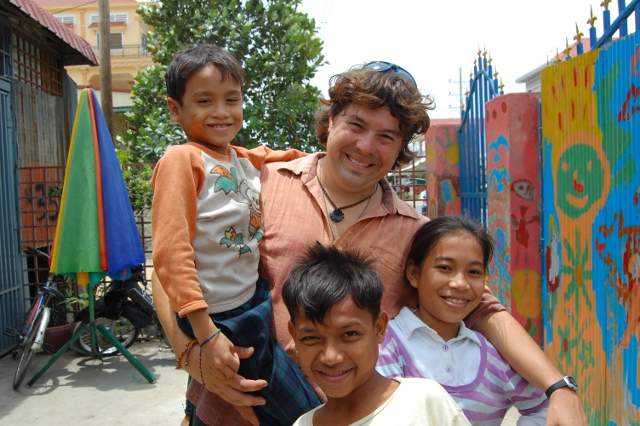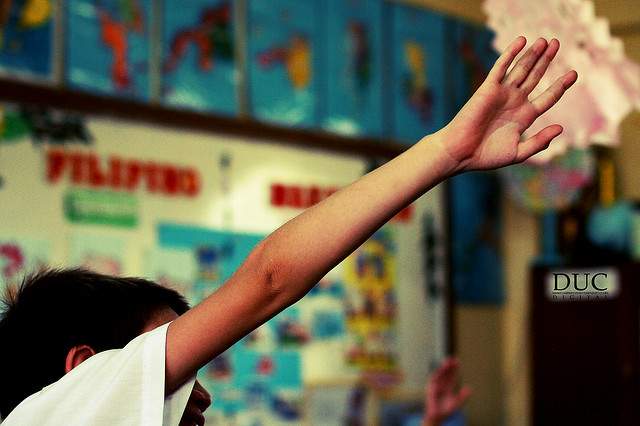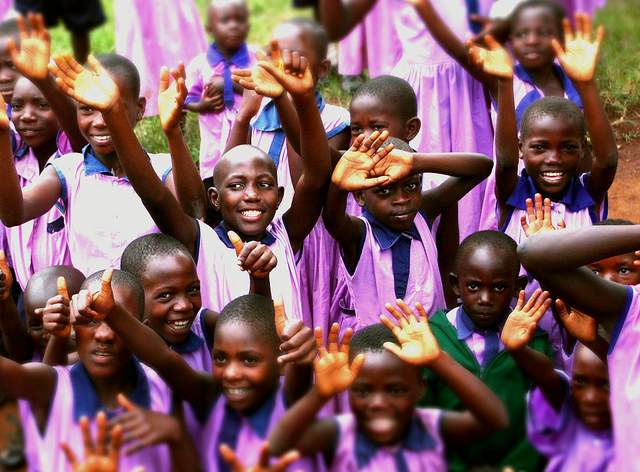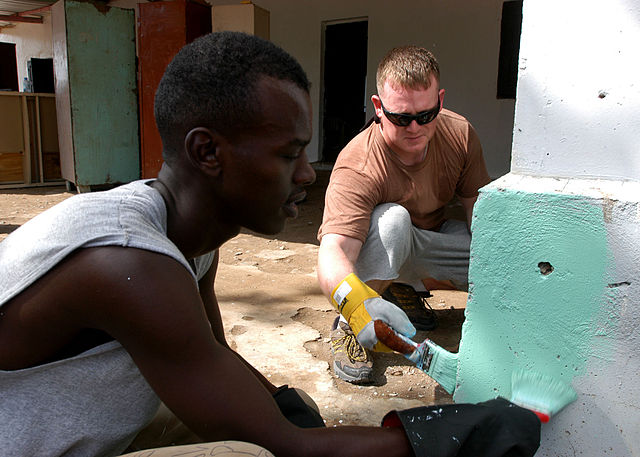Voluntourism. A word that is thrown around quite a bit in the travel world these days.
I left Portugal for what I thought would be three months of volunteering in Argentina. I had no idea what voluntourism was. I wanted to help and I wanted to go abroad. My online searches led me to a certain company (which may not be named as per the terms of my contract).
During my stay I decided that I didn’t want to go back to my job in Portugal. I found out the company sometimes hired former volunteers to work as volunteer coordinators, and that there were opportunities for this in Argentina. It felt like fate, and I stayed. I really thought I could make a difference by helping others to do the same work that I’d been doing.
When I was a volunteer, it all seemed simple and worthwhile. I would go to my orphanage, play with the kids, try to teach them something, and try to motivate them to learn in school and work hard at bettering their lives. It was not always easy, and there were days when I would get home to my host family exhausted and frustrated, thinking, “What the hell am I doing here?” The next day one of the kids would go to school because he thought of me, or I would finally connect with one of the shyer ones, and it would all fall back into place. I felt fulfilled, as I haven´t since.
Working on the other side, as a volunteer coordinator for almost a year, I learned that things were not that simple. I learned that they were actually a voluntourism company, so profit was involved. I found that some projects made no sense to me because they had no structure and were more beneficial for the volunteer than those in need. At one point I was struggling with the possibility that none of it had any point at all. Sure it made an impact on the volunteer´s life, but what about its effect on the children and their community?
This feeling haunted me for some time. It led me to do some research on the structure and ethics of voluntourism and to pay more attention to my work and that of the volunteers. I paid close attention to the impact on everyone involved. I put my fear of discovering that I had made the wrong choice aside and allowed myself to reflect on it. I reflected particularly on the projects in orphanages and schools.
Experiencing is learning
For the children, this experience gives them the chance to be in contact with a worldview and cultures to which they would otherwise never have been exposed. This interchange of cultures helps them to start relating to the rest of the world to real people, which sharpens their curiosity and makes them want to discover other things.
[social]
Before Hans came, 14 year old Rodrigo had no idea where Germany was, despite having been taught geography in school. For him it was just another blur on a map. Now he wants to know not only where the country is, but where Hans´s city is on it, what he eats there, and what his friends and family are like. What sparked his curiosity was nothing more than a couple of football matches played after school.
For the volunteers, the culture shock, when they deal with it well, will teach them to handle differences, be more attentive and be respectful of cultural diversity, making them more humble and aware of how lucky they are.
This interchange of cultures helps them to start relating to the rest of the world to real people, which sharpens their curiosity and makes them want to discover other things.
When you consider that most of the people doing this are between 18 and 21 years old, the impact this experience can have on their lives is even greater, but even most of the older volunteers feel they return home changed. I know I have. Of course some handle it better than others, and the support of having an organization of this kind close by helps a lot with the troubles the volunteers might encounter.
One person can motivate a child
The (absence of) family structure most of these kids grew up with never passed on the importance of studying, be it to be able to get a good job and life opportunities or just for the sake of learning. And because they feel excluded, or isolated, they gravitate towards other children with the same ideas, entering a vicious circle that can catch and restrain them for life. Getting in touch with someone who sparks their interest in that which is different might awaken, in a gentle and more effective way, their taste for knowledge.
Tina was a volunteer at an all girls orphanage. She was 17, tall, blond, and beautiful. The girls used to say she looked like a movie star. But she was their own private star. She would bring them make-up and paint them, draw butterflies for their rooms and take the smaller ones on her back, jumping around, while sharing stories of her life back home and her plans for the future.
One week after she had left one of the girls asked me if I had any news from her.
“Well, she´s in her country, studying for her exams now.”
“You know, I want to go and visit her one day. But I have to study hard. Tina said I should do that, like her, to get a good job and take care of myself.”
Chain reactions of help
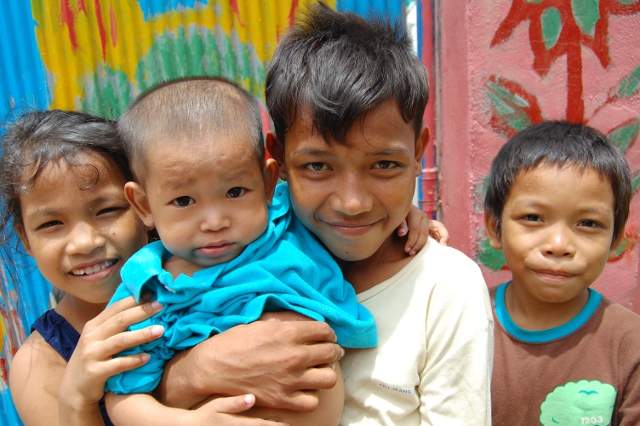
Most of these kids relate mostly with each other and others from similar backgrounds. In being able to reach out to one of them comes the possibility that he/she will be able to do the same for another, and so on. Surprisingly, not many of the volunteers I met had volunteered previously in their home towns. But for many the experience made them realize they also wanted to help at home and become more active in their own communities.
In addition, some volunteers get so involved in their projects and/or the community and families that they come back to the country for other projects, thus providing more help. Others don´t come back, but continue to help from their home countries, spreading the word about the projects and raising funds to further support them.
Getting the priorities straight
The fact that some companies design the projects with only the volunteers needs in mind is one of the main criticisms of these companies. The most vivid memory of my first staff meeting as a volunteer coordinator is the knot in my throat. The problem being discussed that day was the lack of projects/placements to place everyone that had been accepted to come. The main office had decided to accept all the requests and was demanding that we find projects.
I was confused. So this was how it worked? The projects were established/found according to the volunteers and not the other way around?
I was confused. So this was how it worked? The projects were established/found according to the volunteers and not the other way around? Luckily, in this case the local staff are very responsible and look for projects that do indeed benefit from having foreign volunteers.That is not always the case, and the consequences of it can be very serious.
A hand up, not a hand out
When creating and supporting a new project, it is essential to evaluate its sustainability. Projects should be able to continue in case the volunteers stop coming and should aim at self-empowerment. Care should be taken not to create dependencies on services or products that the community cannot support on its own in the long term (the law of unintended consequences).
In the case of orphanages and schools, volunteers should not be the only source of help (what if in a month there aren´t any volunteers?), and they should focus not only in playing and teaching the children, but also passing some of their training and skills on to the local staff. Having an English native speaker practice conversation with the students is useful, but if you have someone that has teaching skills, it is more helpful for them to help train the local staff.
Do no harm
A particularly important aspect relates specifically to voluntourism in orphanages or care centers for children removed from their families. I remember Ines, the more experienced coordinator there, repeating the same thing over and over to the other volunteers: “Don´t let the kids get too attached to you. Please explain to them you are here to help, but you will leave. Never leave without saying goodbye.”
We need to remember that these children are emotionally vulnerable. They have been abandoned and many abused; they want someone they can trust, but they will exponentially demand any kind of attention given and feel as if they were let down once again if things are not clear. If this relation is well managed, it can even become a good way for the children to understand that, at times, people will come and go into their lives, and that their leaving has nothing to do with something the child did wrong. This needs to be explained to upcoming volunteers and monitored throughout their stay, or they will do more harm than good.
Don´t let the kids get too attached to you. Please explain to them you are here to help, but you will leave. Never leave without saying goodbye.
“With great power there must also come great responsibility” (Stan Lee)
These companies (should) work locally with institutions and NGOs, and it is their responsibility to evaluate the worthiness and honesty of their projects, but some do not. The authorities in each country (both the host and the providing) should also have some sort of regulation for these actions, but they rarely do.
As aspiring volunteers, it is our responsibility to investigate all these aspects when choosing where and how we want to help. We need to be honest with ourselves, humble enough to recognize what it is we truly have to offer, and demand that the organizations provide what they claim to offer in a sustainable and effective way.
When I made my choice of where and how to volunteer, I had none of this information. I made an un-informed (no matter how well intentioned), sentimental, and relatively selfish (I looked for what I would like to do and where I would like to go) search and final decision. Luckily it all turned out all right, but I´ve learned that that is not the way to do it.
A voluntourism checklist
Here´s a checklist to help you find the best project for you, taking into consideration everything discussed before:
- Make a realistic list of your interests and the skills you have to offer in terms of travel experience and volunteer work. Make sure you choose countries where you can speak (at least some of) the language.
- With this list in mind, start your search. You should use a combination of on-line databases, word of mouth, and internet research.
- This can be an exhausting process; there are thousands of organizations, educational programs, and tour companies. Try to be as specific as possible: include preferred country, type of project/skills you offer, or even the name of the organization, if you already know any.
- Good resources for the search are: Go Overseas, Idealist; Voluntourism International and Transitions Abroad
- Choose the project or projects that you think might interest you the most.
- Evaluate the program(s) you chose in terms of support for the volunteers, sustainability, possibility for corruption, and “the law of unintended consequences”, as discussed before.The best way to do this is to get in contact not only with the organization but with returned and on-site volunteers. Try to get information not only from the contacts you´re given from the organization (ask for others from the volunteers you speak to, for example).
- You should ask questions and require volunteer contacts, and they should provide them willingly. If they refuse or try to go around it they are probably hiding something and you should choose another organization.
- Try to assess:
- How is the project need determined, how involved is the local communit,y and do they speak the local language/have local staff.
- How self-empowering is the project, and how (or if) do they measure their results.
- How much support is provided to the volunteers. Was the project what had been described by the organization.
- Once you choose your project, prepare for it.
- Get familiar with the tasks you´re expected to perform; if you´re working in a school or an orphanage get to know how many children are there, what are the age ranges, what are their needs.
- Think of alternative didactic materials you can take, or arrange for on-site.
- If you don´t master the local language it´s also a good idea to develop it further before you go.
To read more about volunteering abroad, check out the following articles and resources:
- Check out our Volunteering page, which has over 20 articles about volunteering
- Read the book The Volunteer Traveler’s Handbook
- Grassroots Volunteering
- How to Get Started with Voluntourism
- Five Reasons Not to Join the Peace Corps
- 7 Ways to Work with Wildlife Abroad
- From Tourist to Agent of Change: What You Need to Know About Voluntourism
Photo credits: Seattle Red Cross, WAVA Limited, DucDigital, CanAssist African Relief Trust, US Navy, all others courtesy of Adam Seper and may not be used without permission

